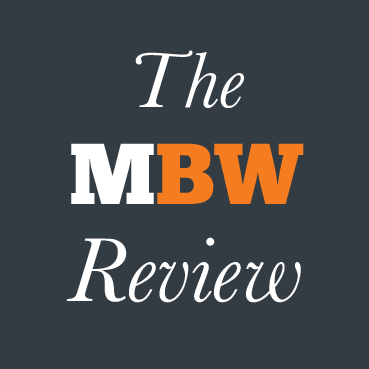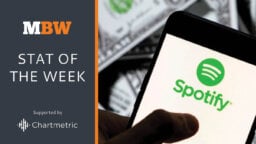
It wasn’t that long ago that the recorded music industry was teetering on the brink of panic over the negative effect the coronavirus lockdown could have on streaming.
Industry leaders in various countries predicted a “crisis” for the business if music’s streaming subscription base tumbled. And as recently as May, Goldman Sachs dropped its annual forecast for global subscription streaming revenues in 2020 by over $2bn.
Throughout these concerns, Spotify has continued to bring the business reassuringly good news.
In the first six months of 2020, SPOT’s global streaming subscriber count grew by 14m people (from 124m up to 138m).
That 14m growth was actually faster than the equivalent increase seen at Spotify in the first six months of 2019, when the platform added 12m subscribers globally (from 96m subs to 108m).
That said, Spotify’s subscription revenue growth across the first half of 2020 (+€120m) failed to match that seen in the prior year period (+€182m). Because… ARPU.
Today, Spotify co-founder and CEO Daniel Ek faced down some tough questions on the future of his business during an interview at the Nordic-centered Slush Music event.
MBW listened in. Here’s what we learned…
1. Ek’s going to personally devote €1 billion over the next decade to fund tech “moonshots” in Europe…
The theme of today’s Slush Music interview with Ek was, How Can Europe Produce More Supercompanies?
Ek used his opening monologue to argue: “Europe needs more super companies, for the ecosystem to develop and thrive, but more importantly, if we’re going to have any chance to tackle the infinitely complex problems that our society is dealing with at the moment.”
Acknowledging that one of the biggest barriers to growth for startups is capital, he subsequently announced a personal commitment of €1 billion over the next decade to invest in European technology companies working on everything from machine learning to biotechnology, material sciences and energy.
“It’s hypocritical to promote and encourage entrepreneurship and not invest in it personally. So put your money where your mouth is, as they say.”
Daniel Ek
Ek says he’ll do this by funding “so called moonshots, focusing on the deep technology necessary to make a significant positive dent, and work with scientists, entrepreneurs, investors and governments to do so”.
He added: “It’s hypocritical to promote and encourage entrepreneurship and not invest in it personally. So put your money where your mouth is, as they say. The ingredients are here, we just have to put it together. And then we have to nourish it”.
Elsewhere in Ek’s opening statement, he offered some advice to fledgling European startups: “Don’t sell. But even more importantly, don’t sell early.”
Said Ek: “I get really frustrated when I see European entrepreneurs giving up on their ambition…by selling very early in the process to big, non European companies.”
He added: “We need more super companies [in Europe] to raise the bar and can act as an inspiration. In fact, Spotify wouldn’t be where we are today, the global leader in audio, if we had listened to the many people who said that we should sell.
“I understand of course, that it was a lot more difficult to say that in our early days when we were smaller and our future was more uncertain. But I’ve been blunt about this point in the past: don’t sell. But even more importantly, don’t sell early.”
2. Ek’s “not even sure” himself what Spotify’s long-term goal is – but predicts that half the world’s population will be listening to “some sort of audio service” in years to come…
Ek set out Spotify’s ‘Audio First’ content strategy back in February 2019 and has since reiterated the company’s mission to become “the world’s No.1 audio platform” many times.
Spotify’s audio strategy has included spending hundreds of millions of dollars on podcast-related companies like Anchor and Gimlet Media and Parcast, sports news companies like the Ringer and podcast-related content and talent – such as the $100m deal for the Joe Rogan Experience earlier this year.
With all of this in mind, Ek was asked: “What is the end of this journey? What is Spotify, long-term?”
Ek’s response? “This is the amazing thing. I’m not even sure I know. If you would have asked me a few years ago, I’m not sure I even thought it was possible within the realm of Spotify to tackle all of audio.”
He added that Spotify is still “early on our journey” and that he believes “at least half the world’s population will be listening to some sort of audio service” in the years to come.
“That’s now three and a half, four billion people depending on how you’re counting it,” he added. “Spotify is only 300 million [users] so far, and most of them will use an audio service via the internet into the future.
“So we’re talking about billions of consumers that to try to reach [in the next decade]. As part of that, I’m sure we will learn more things about what we need to do to improve our offering, either for consumers or for creators, as well.”
3. Speaking of creators, Ek believes that there will be more revenue for them in the future – as spotify and the music streaming business evolve..
In today’s interview, Spotify’s boss claimed that the company is getting on “a lot better,” with music industry rightsholders, following, he said, concerns early on about whether or not streaming would ever “compensate for any shortfall in download revenue”.
“Now we have the answer,” said Ek. “It is. And not only that, but it keeps on growing by healthy numbers each and every year.”
He added: “We’re at that point now where everyone’s like, ‘Well, of course streaming is the thing’. That’s obviously incredibly gratifying for someone like myself who’s been working on this problem now for 14 years.”
But while the value of the format to the wider industry is evident – especially in the US where music streaming revenues are on course to grow by over $1bn in 2020 in spite of the pandemic – Spotify still faces criticism from some creators about what they earn from the service.
“I believe that there will be a lot more creators that can live off their art than what currently [do] today.”
Daniel Ek
You might remember that Ek has previously said that it’s Spotify’s mission is to have a million creators making a living from their art.
In July, Spotify revealed that the number of artists making up its “top tier” of acts now stands at over 43,000, meaning that 90% of the streams on the platform are shared by these artists.
We noted in July that this group of artists – those sharing 90% of streams – has (a) almost doubled in number in the past three years, and (b) nearly tripled in the past five years.
Questioned about what he would say to those artists who still aren’t convinced that they’ll ever earn a living from streaming, Ek countered that “streaming is still a growing market”.
He added: “When you think about streaming now and you think about streaming in the future, it is and will continue to grow and be many multiples larger than it is today.”
Ek said that this “means that there will be even more revenue out there for all creators”.
He added: “This is an evolving platform, there are going to be more and more offerings. What we’re focused on is providing more ways for creators to engage with consumers.
“We will evolve to become an even more creator centric platform over the next decade, too. I believe that there will be a lot more creators that can live off their art than what currently [do] today.”






